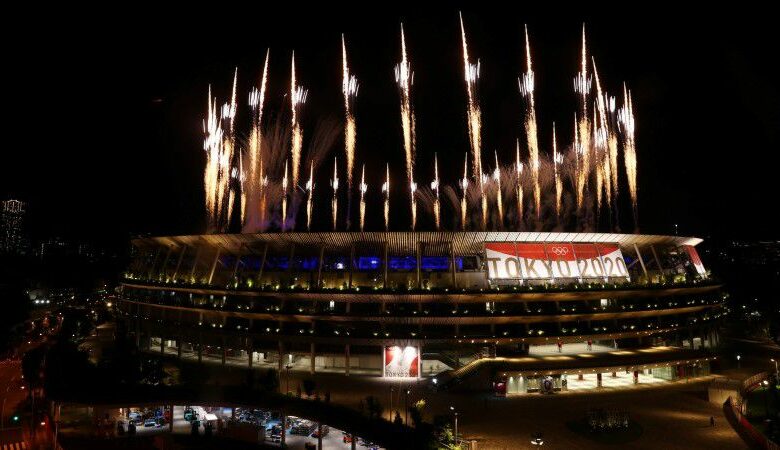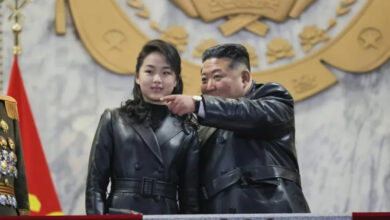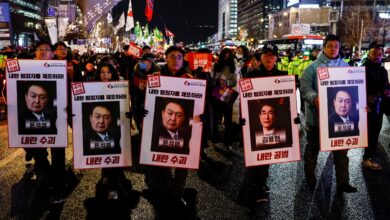
TOKYO, Aug 8 (Reuters) – Fireworks lit up the night sky above Tokyo on Sunday as Japan prepared to douse its Olympic flame and close a Games that were nearly unravelled by the pandemic and were transformed by the drama of politics, dazzling sport and deeply personal turmoil.
A volley of white-and-gold fireworks streaked above the nearly empty Olympic Stadium, emphasizing again the oddity of an Olympic Games held without spectators.
The Olympics were originally intended to show Japan’s recovery from a devastating earthquake, tsunami and nuclear crisis in 2011. After being postponed for a year, organizers said they would be held as a symbol of the world’s triumph over the pandemic.
But without spectators and with COVID-19 variants resurgent, the Olympics fell short of triumph and the financial windfall Japan first sought.
Around a hundred protesters carrying signs that read “Olympics kill the poor” and “We don’t need the Olympics” jostled with police officers outside the stadium, although they were outnumbered by the crowd that lined the streets.
Public anger over the pandemic response and a slow-to-start vaccine roll-out have badly damaged Prime Minister Yoshihide Suga’s standing. Public opinion polls showed most Japanese opposed holding the Games during the pandemic.
During the Games, would-be spectators came out in force, defying authorities and blistering heat to peek in from overpasses as they tried to catch a glimpse of outdoor events such as the triathlon or new sports such as skateboarding.
Organisers appear to have prevented the Games from spiralling into a COVID-19 superspreader event, notable given that some 50,000 people came together amid the pandemic.
While the bubble – the set of venues and hotels to which Olympic visitors were largely confined – appeared to hold, elsewhere some things fell apart. Fuelled by the Delta variant of the virus, daily infections spiked to more than 5,000 for the first time in Tokyo, threatening to overwhelm its hospitals.
Reporting by David Dolan, Mari Saito and Chang-Ran Kim; Additional reporting by Karolos Grohmann, Billy Mallard, Antoni Slodkowski, Sakura Murakami and Nick Mulvenney; Editing by Pritha Sarkar, Peter Rutherford, Himani Sarkar and Clare Fallon




